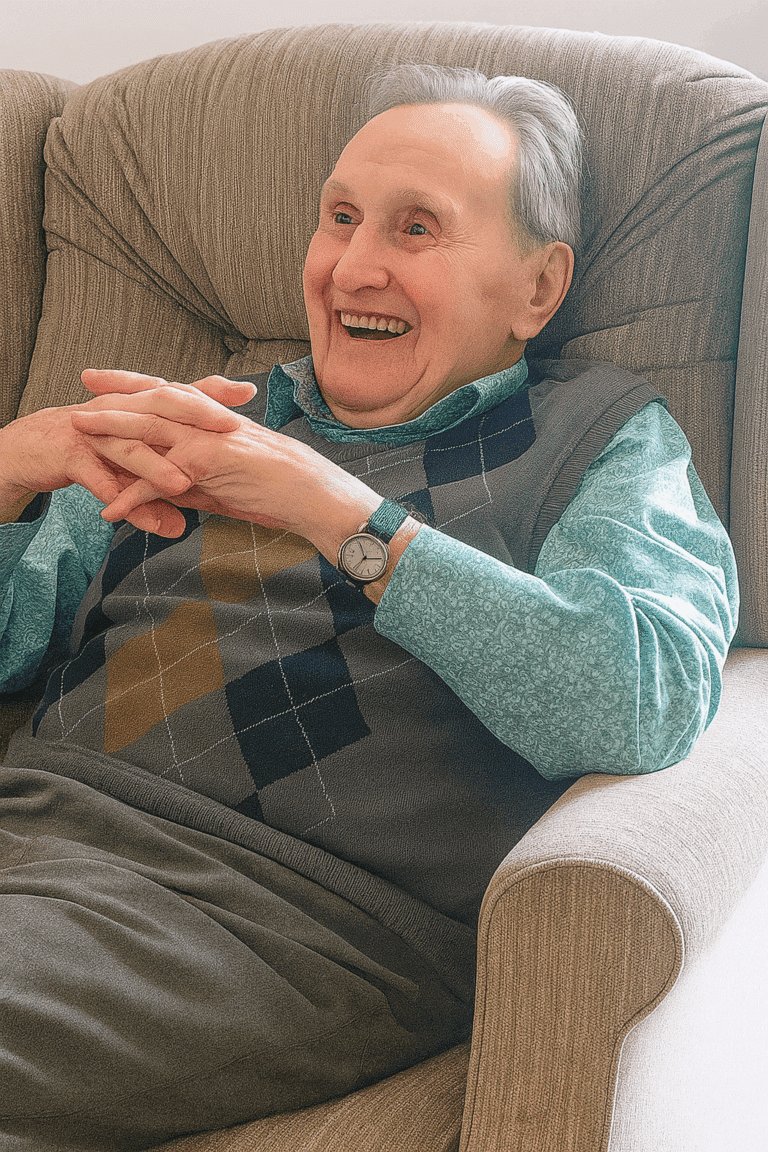Is palliative care the same as end-of-life care?
Palliative care and end-of-life care are often considered to be one and the same thing, but the fact is that palliative care generally starts well before end-of-life care – often from the moment a terminal diagnosis is made. End-of-life care, on the other hand, is for those who have moved on to the nest stage and are expected to pass away within just a few months.
What is end of life care?
End-of-life care is care for people who are in their last months or weeks of life. It is designed to help them live comfortably and in as little pain as possible for whatever time they have left, thereby enabling them to die in peace and dignity when the time comes. Chesterford Homecare does provide live-in end-of-life care, but usually as a natural continuation of palliative care. This approach enables us to ensure that the wishes of our clients and their family members are known well in advance and can be respected by our live-in carers.
A person nearing the end of their life has the right to make their wishes known regarding where they would like to spend their last days. End of life care can normally be provided either at home, in a residential care home or in a hospice.
If you want to see out your last days at home and receive end-of-life care from a live-in carer, it will be your GP who has overall responsibility for your care, although you may also be visited from time to time by a community nurse. A live-in carer will provide support and comfort to both clients and families during his difficult time and will also be on hand to support any specialist end-of-life nurses who may need to be brought in to provide more specialist care.
With live-in care you don’t have to worry about whether someone can remain with your loved one 24/7. The live-in carer will provide respite for when you need to rest or take a break, and will also take care of all the practical aspects of looking after someone nearing the end of their life.
Chesterford Homecare has a team of kind, sensitive and experienced care staff who specialise in providing end-of-life care to families in Essex, Suffolk, Hertfordshire and Cambridgeshire. Having said that, it will generally be more beneficial for clients and their families if live-in care can be put in place well before a person is nearing their end. If live-in care is introduced at the palliative care stage, this will enable a care plan to be drawn up and implemented which allows the person to enjoy the best possible level of comfort, peace and dignity throughout their final months of life.
Please give us a call on 01799 530780. We are there to listen and will be happy to discuss your current situation and hear exactly what type of care you are looking for. We will give you clear and honest advice about the options available and which one might be best for you and your family.
What is palliative care?
If you have been diagnosed with an illness that cannot be cured, palliative care is there to help you and your family manage the symptoms and the pain. Quite often palliative care is provided alongside other treatments or therapies for a life-limiting illness. We find that palliative care requires a holistic approach which helps the client deal with the shock of a diagnosis and the journey that is ahead of them, as well as just the physical issues. Live-in carers can be a great source of comfort and companionship throughout this time. Professional, but at the same time kind and caring and less emotionally involved than a family member, they can provide valuable support at this time, forming close bonds and a real understanding of what a client’s wishes are when their care needs to move towards end-of-life.
There are many healthcare professionals who will be involved in providing palliative care as part of their normal role, in particular GPs, community nurses, specialist occupational therapists and physiotherapists. These medical professionals can provide guidance as needed and our live-in carers will be happy act upon their advice and instruction and run errands if a member of the family is unable to.
If someone close to you has an acute, life-threatening condition, or an advanced illness such as cancer or dementia, or is becoming increasingly frail through because of one or more other conditions, then please do give us a call to find out how our live-in palliative care service can support your loved one in their own home.
When does palliative care become end-of-life care?
It is generally accepted that end-of-life care is for those who are expected to die within 12 months. However, a lot will depend on the age of the patient and the nature and severity of their condition and in certain circumstances death may occur within a much shorter period.
Live-in care may be the right solution in a wide range of situations other than just palliative and end-of-life care
We have clients at various different stages of life who also benefit from live-in care, not just those with life-limiting illness or who are approaching end-of-life. If you or a family member are growing increasingly frail and would benefit from 24/7 support and companionship at home – speak to us about live-in care on 01799 530780. We can work with all the associated healthcare professionals to ensure that you – or your loved one – receives the highest possible quality of care. Click Contact Chesterford Homecare for a free care quote. if you want to read more click What end of life care involves – NHS (www.nhs.uk)



